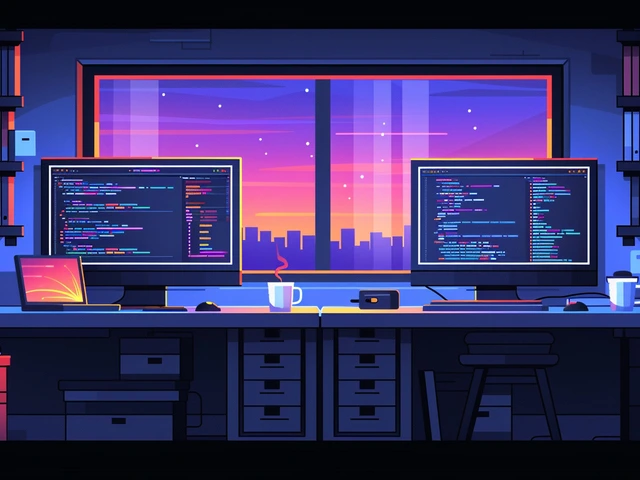Apr
21

- by Warren Gibbons
- 0 Comments
Mastering the Basics: The Foundation of Effective Coding
Stepping into the world of coding, the first and perhaps most crucial step is to build a strong foundation. Grasping the basics not only involves understanding syntax and basic constructs, but also appreciating the principles of clean coding. Writing simple, readable, and reusable code can transform a cumbersome project into a manageable one. It’s about making your code speak not only to the machines but also to fellow developers who might work on or evaluate your code in the future. Concepts like DRY (Don't Repeat Yourself) and KISS (Keep It Simple, Stupid) aren't just clever acronyms, they are significant principles that guide you in creating efficient and maintainable code.
A solid grasp of version control is another essential skill. Tools such as Git allow developers to keep track of changes, collaborate without conflicts, and maintain a history of their project which is invaluable when needing to identify when and how bugs are introduced. Familiarizing yourself with the command line, although it can be daunting at first, provides a level of control and understanding of your development environment that IDEs (Integrated Development Environments) alone cannot offer.
Practical Exercise:
- Commit to writing small functions that perform one task.
- Regularly use comments to document your thought process.
- Dive into Git with a simple project: track changes, create branches, and explore pull requests.
Leveraging Advanced Tools and Techniques
As you grow more comfortable in your coding journey, delving deeper into more sophisticated tools and techniques can greatly enhance your capabilities. Debugging doesn't have to be a nightmarish experience if you understand and effectively use debugging tools offered by most programming environments. Learning how to efficiently use breakpoints, inspect changes in variable states, and employ logging can save countless hours and undue stress.
Code refactoring is an art form in itself. It’s about restructuring your existing body of code, improving its internal structure without changing its external behavior. This is crucial for keeping your codebase healthy and agile for handling new features and maintenance. An often overlooked aspect of a developer's toolbox is the use of APIs (Application Programming Interfaces) which allow you to extend the functionality of your systems and integrate with external services.
Code Review Practice:
- Engage with peers or mentors in regular code reviews.
- Set aside dedicated times each week to examine and refactor code.
- Document the reasons and results of refactoring for future reference and learning.
Remember, the road to mastering coding is paved with consistent practice, thoughtful application of tools, and continuous learning. By embracing these programming tricks and dedicating time to understanding the underlying mechanics of development, one can undoubtedly make their coding journey far more satisfying and productive.






Write a comment